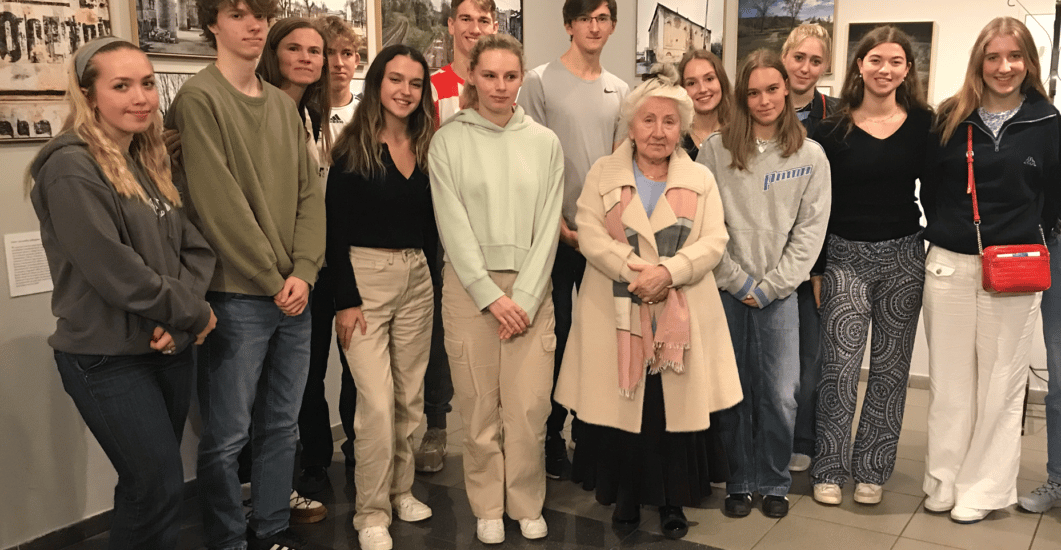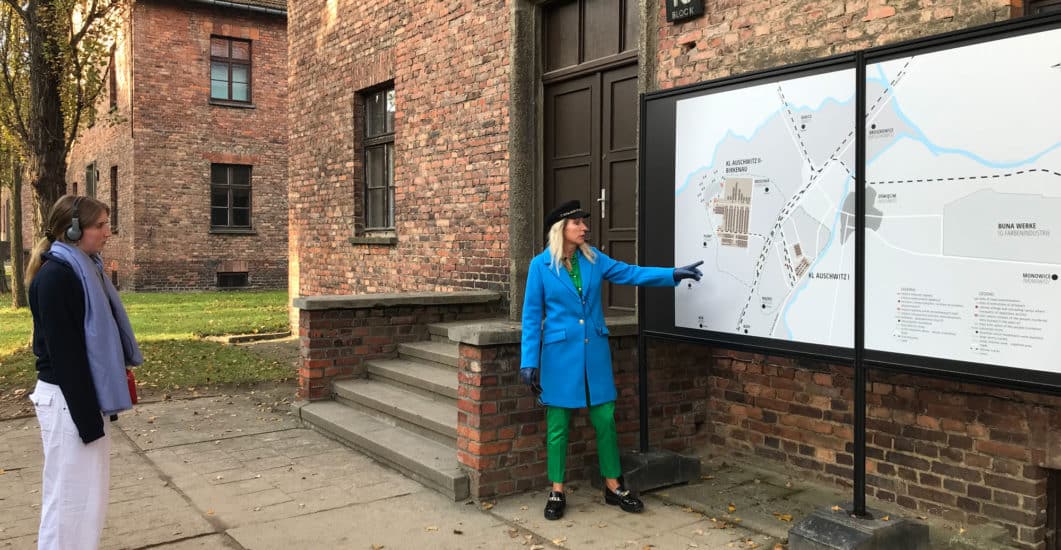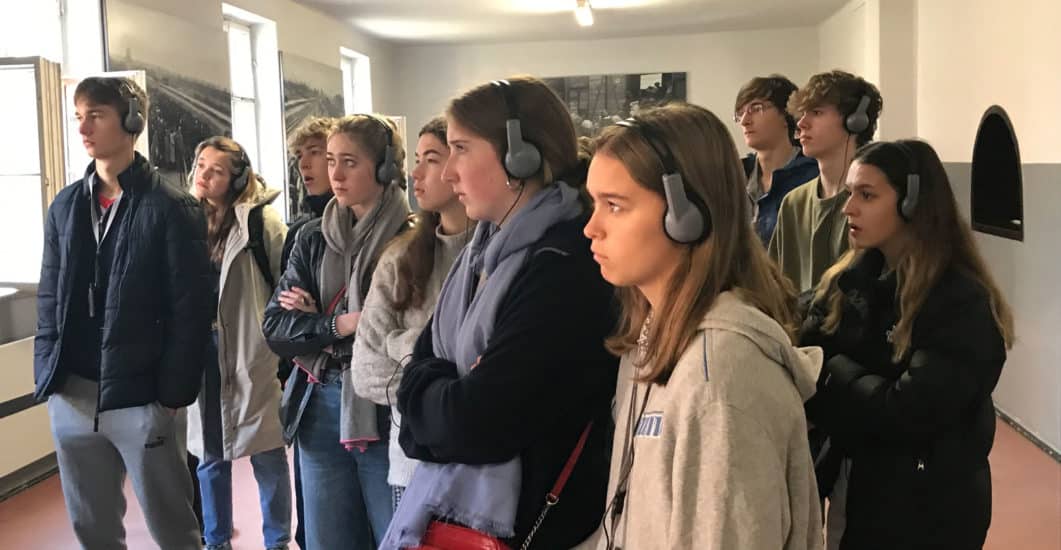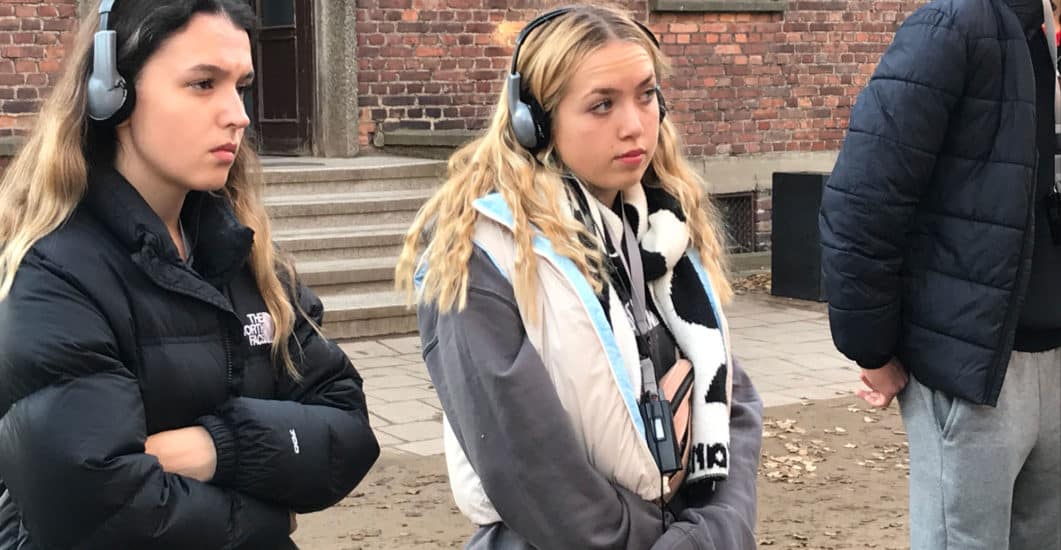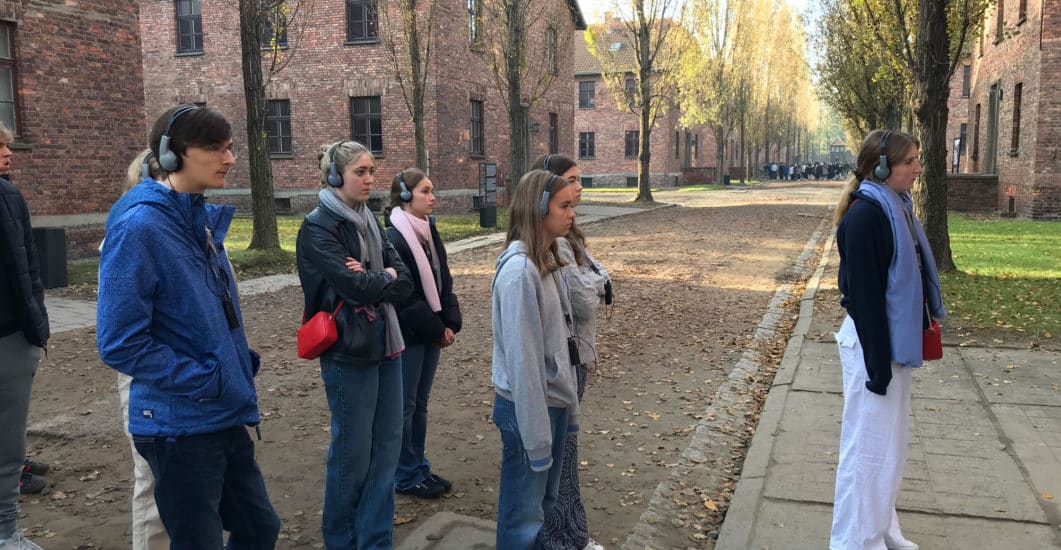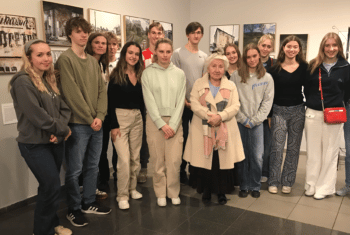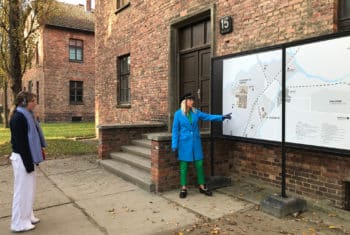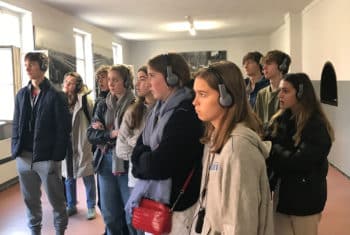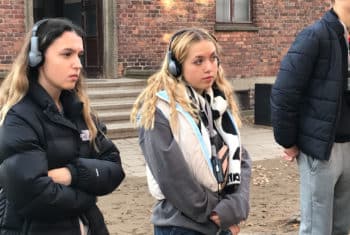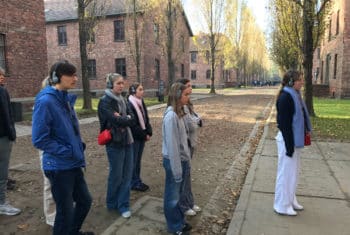Sixth Form Historians and Rep-ers (Religion, Ethics and Philosophy students) visited Krakow and Auschwitz over the half term break to examine the historical roots of the Holocaust and consider the problem of evil.
Visiting areas of historical significance always brings the past to life, but this trip was particularly affecting in the way that it made the students consider the experience of Jewish and Polish people during WW2.
Visiting Auschwitz in the words of the students was: ‘Eerie and chilling. I will never be able to comprehend what it would have been like to be a prisoner…my lasting experience was seeing the shoes of the children and realising that they never got a chance at life’.
We were privileged to spend an afternoon with a Holocaust survivor. We listened in silence as she recounted how her Jewish parents had dressed a dolly in her clothes before giving her as an 8-month-old baby to a convent for safekeeping. She never saw her family again. As she answered our questions, we were struck by her incredible humanity. The only time she showed obvious emotion was when she sympathised with the Ukrainian child refugees today.
We visited Oscar Schindler’s factory museum to get an overview of the Polish experience of Nazi occupation during WW2. Seeing the thoughtful exhibition at the Galicia Jewish Museum opened our eyes to the continuing struggle to remember the history of Jewish Poles that spanned over 1000 years before 1939. Images of roofless synagogues and the gravestone of a Jewish victim murdered in pogroms after 1945 made us consider how the Jewish question did not go away when the Nazis were defeated. We were shocked to learn that 15,000 Jewish Poles were forcibly expelled by Stalin as late as 1968.
We plan to make this important trip biannual for Sixth form History and Rep Students – with the next trip going ahead in December 2023.
“ I have never been prouder of the way that Hurst students interacted with every aspect of the trip. They treated each other, the host country, and the sites we visited with deep respect and thoughtfulness. What more can you ask for as an educator? ” Joanna Clarke, Head of History
